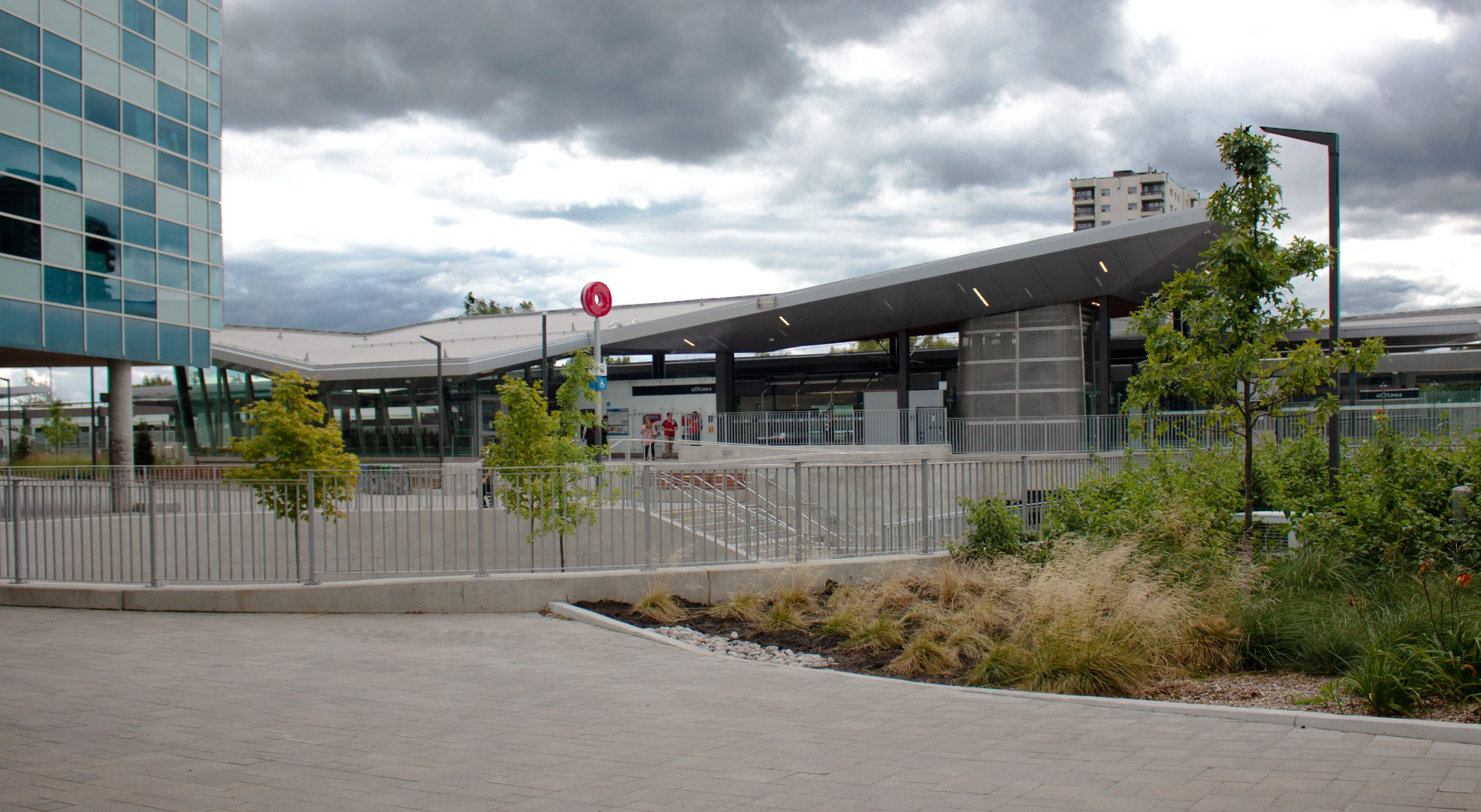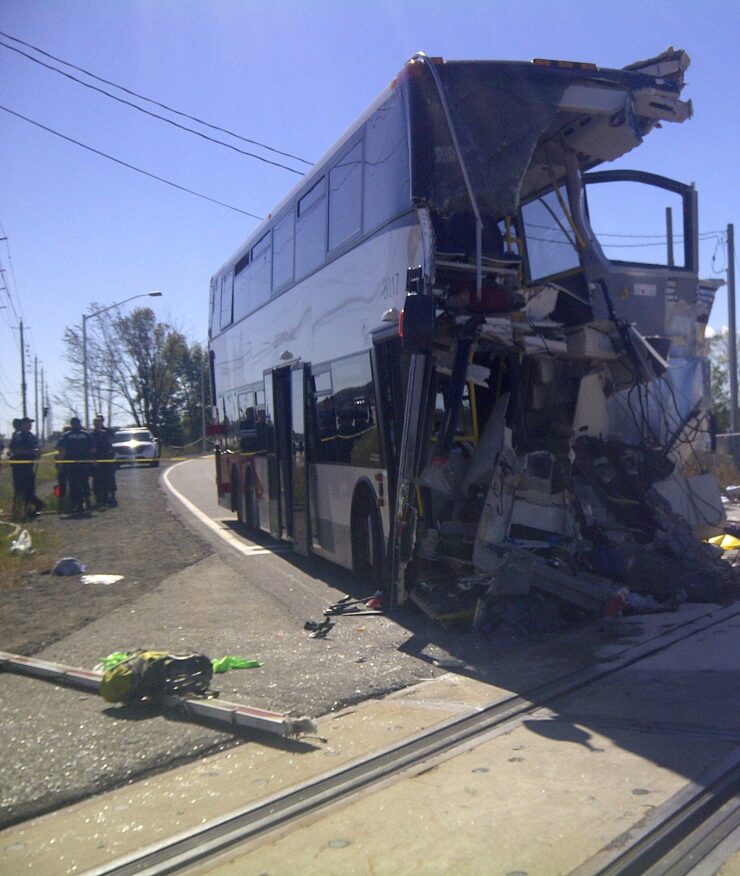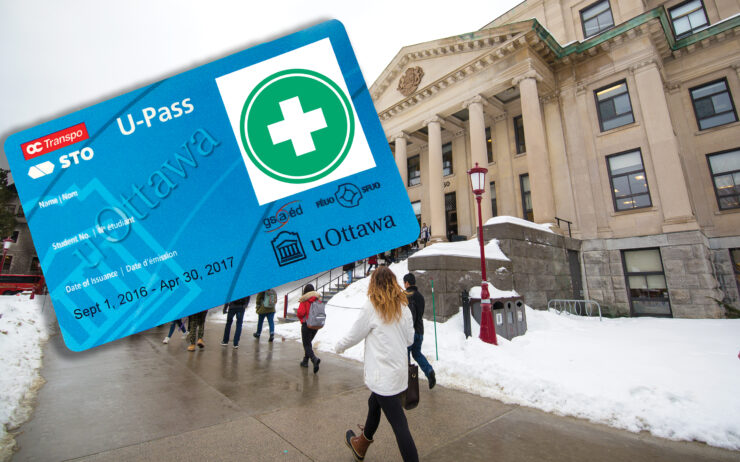STUDENTS EXPRESS FRUSTRATION WITH OC TRANSPO, CITING HIGH FARES, INCONSISTENT SERVICE, AND SAFETY CONCERNS, AS ADVOCACY GROUPS PUSH FOR REFORMS
Public transit is a lifeline for University of Ottawa students, connecting them to their studies, workplaces, and the broader community. Yet, frustrations with OC Transpo’s reliability, affordability, and safety highlight a transit system struggling to meet student needs. From overcrowded trains to erratic service and high fares, students are voicing their dissatisfaction while transit advocates push for meaningful reforms. As Ottawa’s transit network expands, the question remains: will these changes truly address the challenges faced by those who rely on it most?
Maegan McEwing, a U of O student, described the train service as overcrowded, uncomfortable, and lacking in proper etiquette from fellow passengers. She recounted being delayed by fare enforcement officers while rushing to work, a frequent frustration among students. Additionally, McEwing noted a particularly unsettling experience when an individual in possession of drugs approached her, making her feel unsafe—a sentiment echoed by many students who are wary of transit conditions at night.
Daphne Alex-Ogbu, a student commuter from Orléans, shared that her overall experience with the train service is unsatisfactory due to frequent cancellations without prior notice. She explained that OC Transpo often switches to single-car trains instead of double, causing severe overcrowding. “The train fills up really quickly and then leaves the rest behind. Not everyone can get on,” she said. Additionally, she expressed frustration with partial line closures affecting her route to campus, often necessitating a transfer to the R1 bus service that she finds unreliable.
Safety at night was another concern highlighted by Alex-Ogbu, who stated that while she generally feels safe, stations like Rideau and Hurdman tend to attract disruptive behavior, including loud music, smoking, and shouting, which makes her more cautious while commuting.
Gracia Mwanga, another U of O student, raised concerns about the affordability of transit fares, especially during the summer when students do not have access to the discounted U-Pass. “At $3.80 per ride, it’s high for students,” she said, pointing out that long commutes requiring multiple transfers can lead to costly trips. She also mentioned the discomfort of winter travel, with frequent delays and a lack of efficient heating on trains. Cleanliness and overcrowding are other areas she identified for improvement, noting that the high number of riders often causes doors to close before everyone can board.
Katrina Camposarcone-Stubbs, public information officer with OC Transpo, highlights their efforts to make public transit accessible to students, noting that “OC Transpo recognizes students as an important and vital customer group” and promises to engage with their unique needs through service planning. However, a recent frequency reduction during off-peak hours—dropping from every five minutes to every ten—has drawn criticism, especially among students who face extended wait times and missed connections due to these cuts.
Sam Hersh, coordinator for Horizon Ottawa, shared with the Fulcrum that this change is emblematic of broader issues with OC Transpo’s approach to transit service. Hersh stated, “It was unfortunate to see OC Transpo implement a cut to LRT frequency… This now means that students and other riders could potentially miss bus connections while trying to leave or get to campus.” According to Hersh, the cuts contradict the billions invested in Ottawa’s transit system, which was intended to provide efficient and accessible public transportation.
Hersh also points to broader service cuts set to accompany the launch of LRT Phase 2. With an anticipated reduction of 74,000 service hours across the system—around 3.5 per cent of the network—students may see fewer buses on the routes they rely on most. In addition, concerns around the rising cost of the UPass weigh heavily on students, with fares remaining high while services become less dependable. Hersh emphasized that mayor Mark Sutcliffe “has again and again advocated for cuts rather than investing in the system, which will lead to less reliable transit for all.”
For students, one of the most pressing issues is the affordability of transit, and Horizon Ottawa advocates for a fare-free system as the ultimate goal. Hersh argues that the pandemic revealed the unsustainability of a farebox-funded transit system. “It’s a public service, not a business,” he remarked, adding that free transit would relieve students of fare enforcement concerns and make commuting easier and more accessible.
When it comes to improving reliability, Horizon Ottawa suggests implementing dedicated bus lanes on major routes, helping buses avoid traffic delays and maintain their schedules. “Traffic delays turn people off transit,” Hersh pointed out, adding that priority lanes would ensure buses run on time.
To push for these improvements, Horizon Ottawa collaborates with student unions and encourages students to engage directly in advocacy. Hersh mentioned recent partnerships with the student unions of Carleton University and the University of Ottawa, where Horizon Ottawa joined efforts to increase LRT frequency. They also participated in a transit forum hosted by the Carleton University Students’ Association (CUSA) to highlight student transit concerns. “Our relationship with students and student leadership is extremely important to us so that we can push for better policy on transit,” Hersh explained.
Camposarcone-Stubbs stated that OC Transpo’s long-term initiatives, such as the Zero-Emission Bus program and the expansion of electric rail through Stage 2, reflect the city’s dedication to sustainability and reduced emissions. These initiatives will bring expanded electric rail service to Algonquin College, Moodie Drive, and Trim Road, in addition to the gradual replacement of diesel buses with electric alternatives by 2036.
While these efforts underscore OC Transpo’s commitment to a greener future, students and transit advocates argue that current service needs—including frequency, reliability, and affordability—must be addressed in tandem.
Students interested in advocating for better transit are encouraged to join Horizon Ottawa’s campaign efforts and participate in city budget discussions. Hersh advises students to attend the Transit Commission’s budget meeting on November 25, noting that it’s a valuable opportunity to press for safer, more frequent, and affordable transit.
OC Transpo’s five-year road map aims to address some of these concerns, with future projects designed to enhance the overall transit experience. But as OC Transpo continues to evolve, students and advocate groups like Horizon Ottawa remain vigilant, pushing for changes that address the day-to-day realities of Ottawa’s student commuters.





